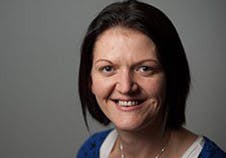UNIVERSITY NEWS LAST UPDATED : 25 SEPTEMBER 2014

A reconstruction of the last known movements of missing schoolgirl Alice Gross has been staged in West London, today. The 14-year-old was last seen on 28 August walking along the Grand Union Canal. Police hope the reconstruction will bring new information as they continue the hunt for suspect and convicted murderer Arnis Zalkalns.
“New evidence coming from today’s reconstruction of missing schoolgirl Alice Gross needs to be treated with caution” warns criminologist.
“The Police and other authorities need to be aware of some of the issues involved in new evidence that may come off the back of today’s reconstruction of missing schoolgirl Alice Gross” says Dr Liz Yardley, Director of the Centre for Applied Criminology at Birmingham City University.
“Eyewitness testimony weeks after an event does have its shortfalls. Many people believe that human memory works like a video recorder: the mind records events and then plays them back. But this is not how it works at all - psychologists have found that memories are reconstructed rather than played back. Remembering is like putting a jigsaw together and investigators have to be careful when handling such evidence as people sometimes add pieces to the puzzle that were not there in the first place. Real memories may unknowingly be combined with information they have consumed in the interim – and we have seen a plethora of images and stories relating to this case in recent weeks.
“I feel, however, that the real value of the reconstruction could lie in its potential to prick people’s consciences. Those who knew things and wanted to conceal them at the time of Alice’s disappearance might be prompted to reassess this now. Relationships change, loyalties change. One person or a number of people knew something at the time and they continue to hold this knowledge now – Alice Gross did not just simply disappear.”
For further comments or interview opportunities, please contact the Press Office on 0121 331 6738.